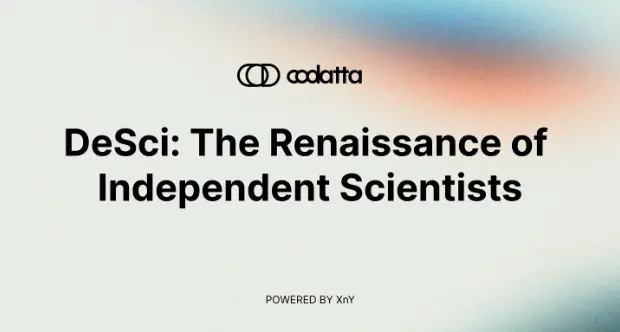The U.S. SEC officially responds: rejects Binance's request to dismiss the billion-dollar lawsuit
Source: Protos
Compiled by: GaryMa, Wu Says Blockchain
On June 5, 2023, the U.S. Securities and Exchange Commission (SEC) filed a lawsuit against Binance and its CEO Changpeng Zhao (CZ) with fines amounting to billions of dollars. This week, the SEC responded to Binance's motion to dismiss the lawsuit, reiterating and clarifying its claims.
The SEC's lawsuit accuses Binance of illegally selling its two tokens, BNB and BUSD, to numerous U.S. investors for fundraising. This fundraising, combined with millions earned from selling other unregistered securities, resulted in at least $11.6 billion in revenue.
In explaining its reasoning, the SEC focused on the Howey test, which U.S. courts typically use to determine whether someone is illegally selling crypto assets. The Howey test refers to a 1946 U.S. Supreme Court ruling in SEC v. W.J. Howey Co., where the Supreme Court defined an investment contract as a transaction that meets the following four conditions:
- Investment of money
- A common enterprise
- A reasonable expectation of profits
- Profits to be derived from the efforts of others
Part of the SEC's argument centers on the flexible interpretation of the Howey test by courts in previous cases involving alleged securities. For instance, it cited three court rulings that indicate "money" can take various forms, not just fiat currencies like the dollar. For example, someone willing to pay for goods and services with monetary value can exchange them in physical form for securities.
Binance stated that despite the lawsuit, it does not list securities.
The SEC utilized decades of legal precedent to counter Binance's claim that it does not list securities. It clarified that investment contracts are a purposeful umbrella term that encompasses a wide range of tools used by promoters to raise funds.
In fact, the SEC summarized decades of court rulings supporting its viewpoint: "Congress has broadly defined securities to reflect a flexible rather than static principle, one that can adapt to the countless and variable schemes seeking to raise funds on the promise of profits from the efforts of others. Courts have found various novel or unique investment instruments to be investment contracts, including those involving orange groves, animal husbandry schemes, cattle embryos, mobile phones, businesses existing solely on the internet, and crypto assets."
The SEC claimed that the price of the BNB token could fluctuate based on Binance's efforts and luck, making it a business with "vertical commonality." It rejected Binance's assertion that the long-term performance of BNB is ultimately unrelated to Binance's efforts.
Binance's lawsuit involves vertical commonality.
'Vertical commonality' exists when the fate of token holders aligns with the fate of the token leaders. The 'vertical enterprise' of BNB includes token holders keeping the price high enough for Binance executives to fund the development of the digital asset ecosystem, attract new users through Binance.com, promote BNB through Binance's platforms and marketing channels, and develop funding for BNB's blockchain.
In this way, all efforts of Binance executives are completely aligned with the financial interests of retail BNB token holders. In fact, Binance executives themselves are the largest holders of BNB tokens. Thus, all BNB token holders share vertical commonality with Binance executives.
The SEC cited the BitConnect case, where the court ruled that the BitConnect "platform itself is a common enterprise." In BitConnect, members had vertical commonality; the value of BitConnect tokens (BCC) depended on the collaborative efforts of BCC token holders and promoters.
Pre-orders on Kickstarter are not securities.
To clarify that investment contracts do not encompass all financial offerings, the SEC referenced a case where profits "must conform to ordinary usage in the form of financial returns rather than consumption." This excludes most Kickstarter campaigns, considering whether benefits received for contributions to fundraising count as securities. In other words, simply pre-ordering a product does not create a situation with a reasonable expectation of profits.
Of course, this may not exclude situations where a fundraising effort implies that benefits can be resold to others at a higher price. At that point, a simple pre-order could turn into an unregistered securities offering.
The element of "financial returns rather than consumption" also became significant in the LBRY case, where tokens could be used to obtain rights to publish digital files on the LBRY platform, which seemed harmless. Unfortunately, its supporters further promoted LBRY tokens as a way to obtain profits, and these marketing statements turned LBRY tokens into unregistered securities.
The Howey test does not require a written contract.
Binance urged the court to consider the idea that BNB purchases do not involve any investment contracts at all. It stated that a strict interpretation of the Howey test would require "contractual arrangements," meaning buyers "must have contractual rights to share in future profits within a common enterprise."
The SEC countered this claim, stating that the Howey test does not require any written contract. It only requires the existence of a "contract, transaction, or scheme" that meets the conditions of the Howey test.
The SEC also rejected Binance's argument that transactions on the Binance.com platform did not occur on U.S. soil and were therefore not subject to U.S. securities laws. It claimed that Binance sold numerous securities to many U.S. investors.
It cited Zhao Changpeng's "Tai Chi Plan," which was first exposed by Forbes' Michael del Castillo and Jason Brett, allowing Binance.com to secretly serve U.S. customers by using BAM Trading as a misleading agent. The second CEO of BAM Trading resigned, stating that "CZ is the CEO of BAM Trading, not me."
In summary, the SEC has formally responded to Binance's request to dismiss its multi-billion dollar lawsuit. The SEC pointed out the weaknesses in Binance's defense and highlighted Binance's attempts to distort the meaning of the Howey test.










